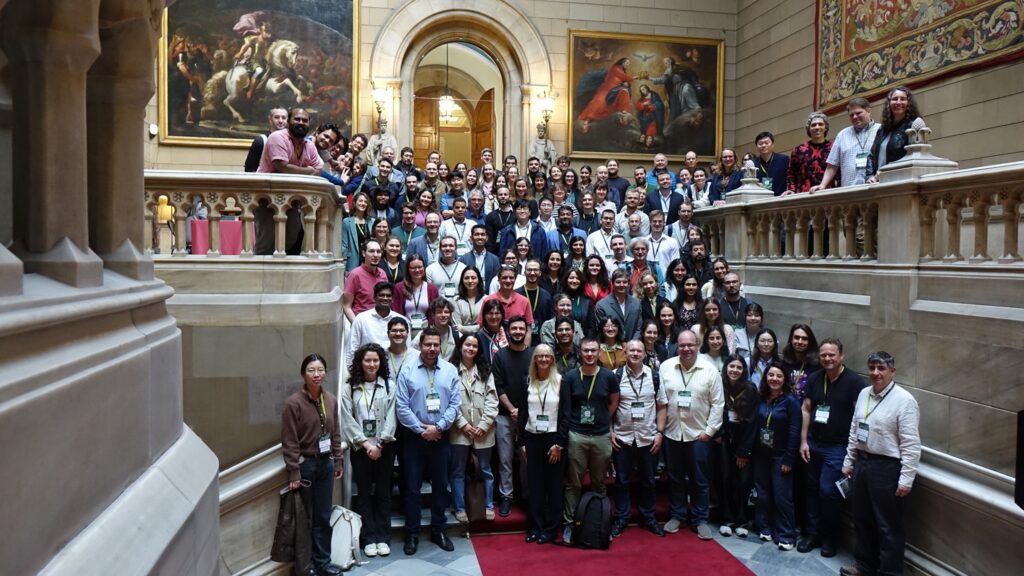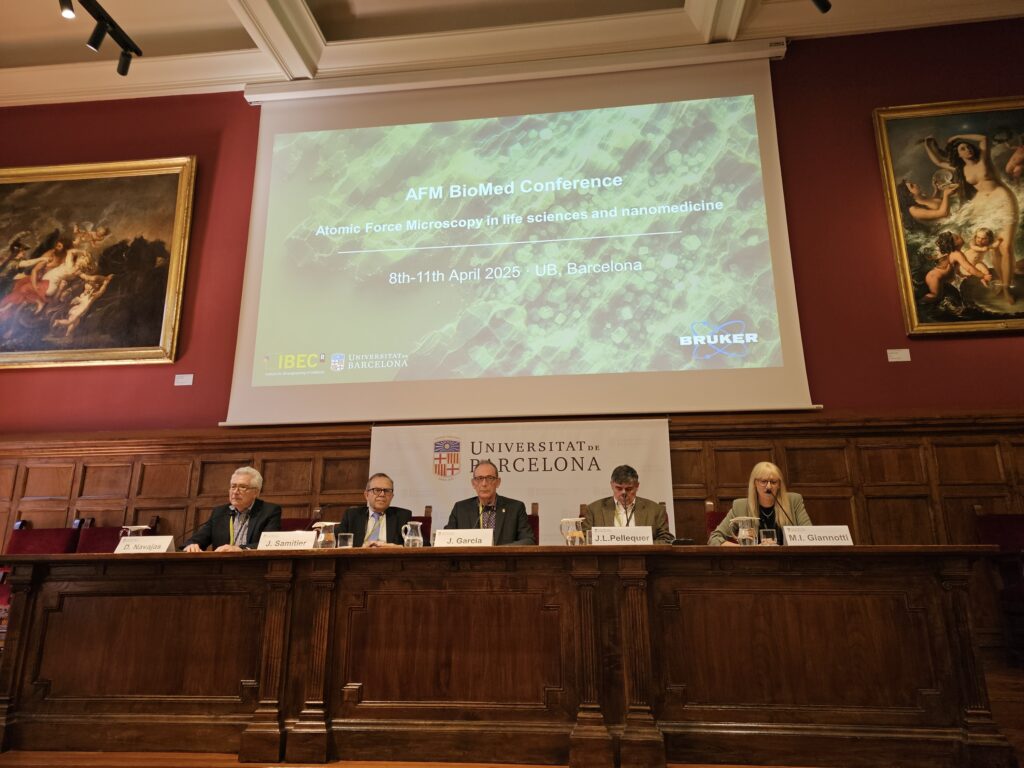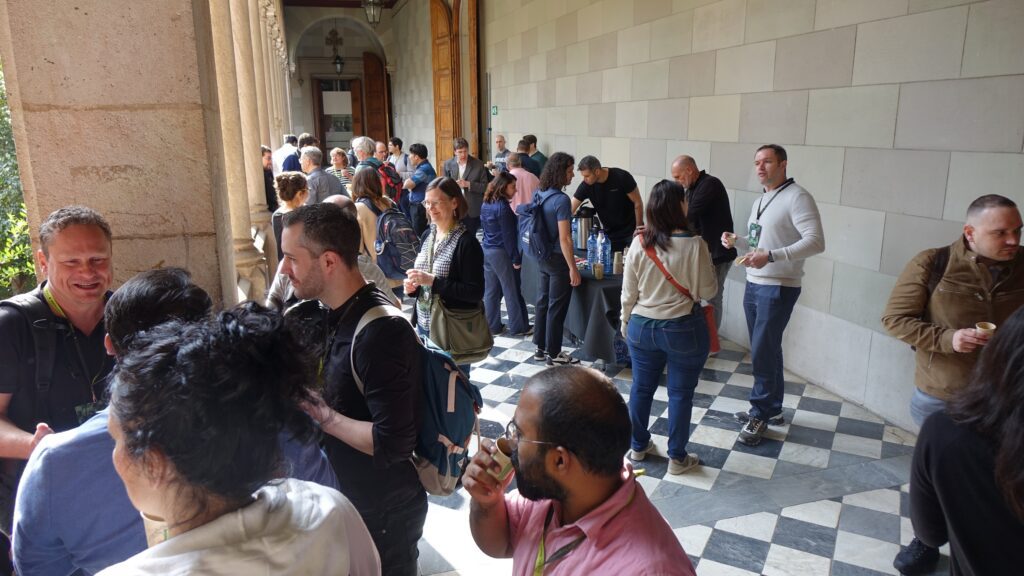The Atomic Force Microscopy in Life Sciences and Nanomedicine (AFM BioMed) conference took place in Barcelona last week. The 2025 edition, which brought together 160 participants, was organised by the Institute for Bioengineering of Catalonia and the University of Barcelona. Experts from various fields shared ideas on how atomic force microscopy can contribute to the advancement of knowledge in health.

Last week, Barcelona hosted a new edition of the AFM BioMed international congress, one of the most relevant scientific meetings worldwide in the field of atomic force microscopy applied to biomedicine. The 2025 edition was organised by the Institute for Bioengineering of Catalonia (IBEC), which hosted and coordinated the event, in collaboration with the University of Barcelona.
‘Events like AFM BioMed are key to strengthening international collaboration and fostering new synergies, not only between disciplines, but also between young and established researchers in the field. The interaction between groups from all over the world allows us to share common challenges and accelerate the development of innovative health solutions,’ said IBEC senior researcher Marina Giannotti, chair of the organising committee.
Over four days, from 8 to 11 April, the congress brought together 160 international experts from academia and industry in the development of new technologies for the characterisation of biological materials at the nanoscale.
‘Interdisciplinarity is key to the advancement of bioengineering, and IBEC is proud to have helped train many of the researchers who are now leading the field,’ said IBEC director Josep Samitier at the opening of the conference.
Also opening the event were Daniel Navajas, professor emeritus at the UB and former IBEC researcher; Jean-Luc Pellequer, researcher at IBS Grenoble (France); and Jordi Garcia, vice-rector of research at the UB, who highlighted the evolution of the congress and the growing impact of AFM techniques in biomedical research.


In parallel to the congress, IBEC also promoted science outreach activities aimed at the general public. On 7 April, the talk ‘Observing the invisible and minuscule world of nanotechnologies’ took place at Casa Orlandai in Barcelona, as part of the ‘Teixint Saviesa’ cycle. In the session, the chemist and scientific communicator Jordi Díaz-Marcos explained how nanotechnology is transforming key sectors such as health, energy and electronics, and the crucial role played by microscopy in the development of these materials.
This year’s edition demonstrated the dynamism and richness of an increasingly connected and transversal scientific community, which is committed to combining biology, physics, chemistry and technology to better understand and treat diseases. Thus, the meeting is positioned as an international recognition of the work being promoted from Barcelona in the field of bioengineering and nanotechnology.





